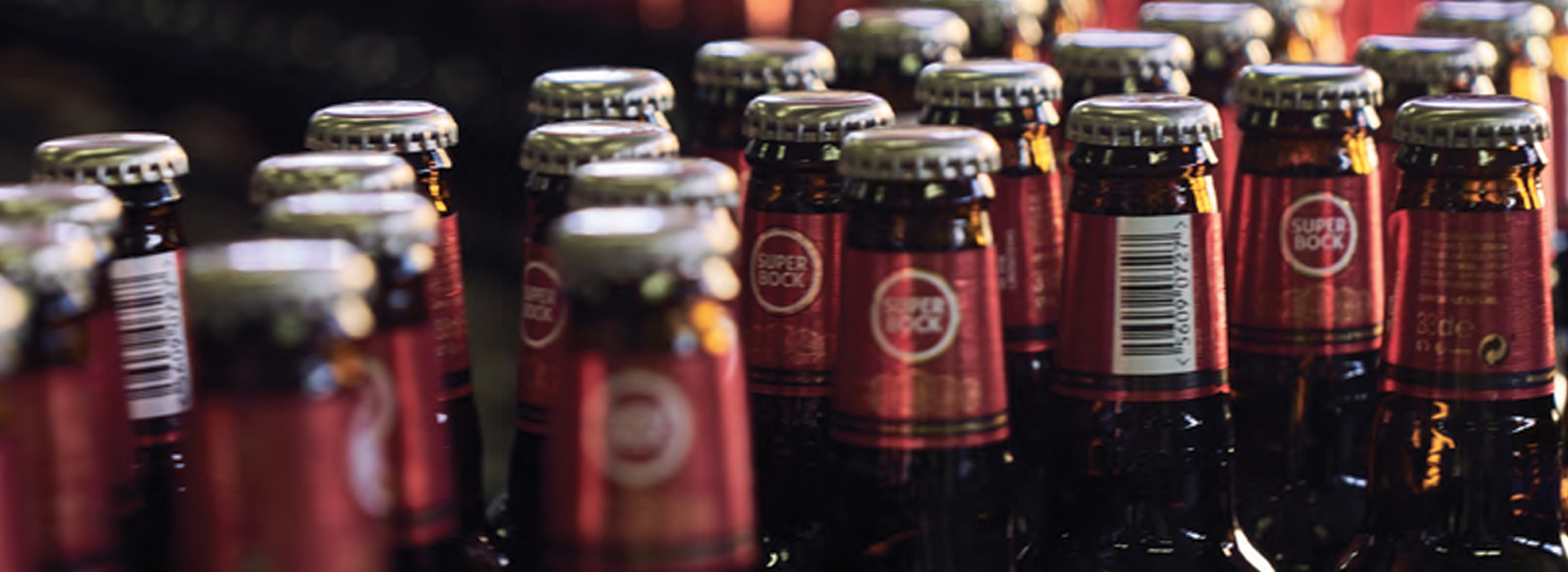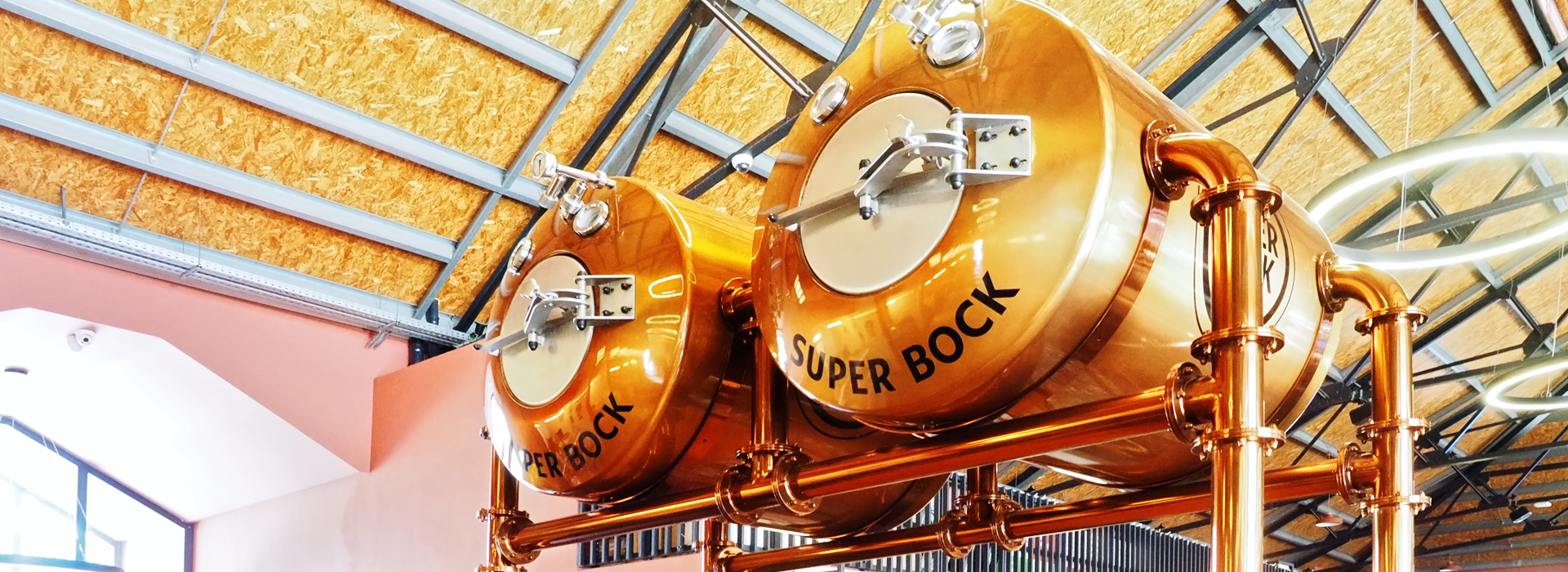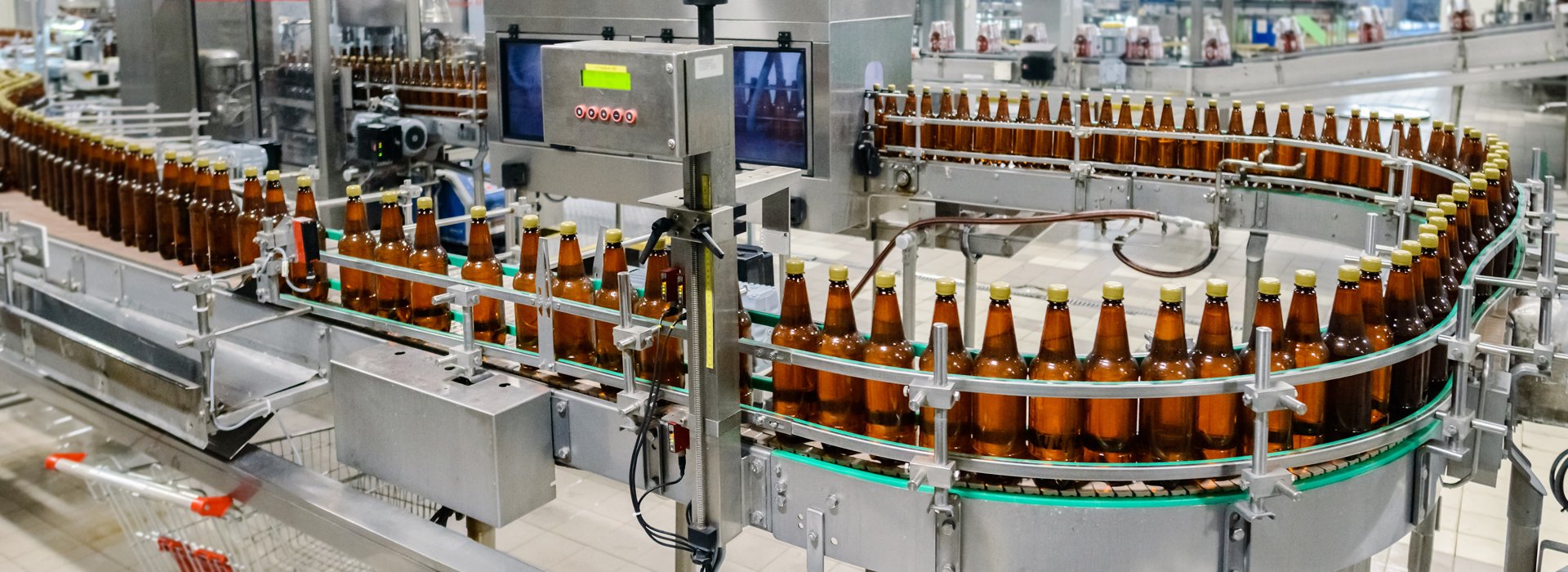Super Bock
When Super Bock, Portugal's largest beverage company and member of the Carlsberg Group, compared its safety performance with other affiliates of the group in 2015 it was in for a bit of a shock. Maria Manuel Dantas, quality manager at Super Bock, says, "As Portugal's premier beer and mineral water producer since 1890, we have always had a very strong quality focus, but benchmarking ourselves against peers in the Carlsberg universe showed we were not as good in health and safety. In fact, we were among the worst in the group."

Super Bock improves supply chain safety
The USAFE programme brings about a radical change in safety attitudes and performance
That result was a wake-up call to Super Bock management. Although the company did not have very severe accidents, there were many smaller ones that the organisation simply lived with. Unhappy with its results, Super Bock therefore sought out an expert in safety management, calling in operations and safety management consultancy dss+ to help reduce accidents and change the company's safety culture.
Diagnosis, causes and symptoms
To understand accident causes and safety issues, dss+ carried out a diagnostic assessment at Super Bock's main production facility near Porto in April 2016 and visited logistics distribution hubs near Lisbon. Consultants spent a whole week evaluating the supply chain, interviewing managers and shopfloor employees, carrying out a dss+ Safety Perception Survey™ and conducting observations. Their findings identified key risks, but also highlighted the challenges Super Bock faced. Many of the risks – from manual handling to work in confined spaces – were common to the industry, but others were due to a lack of focus on safety. As dss+ consultant Ana Maria Vilanova recalls, "We realised that Super Bock were reactive where safety was concerned, not independent or proactive. This showed itself for example in wet floors, broken glass or leaks. Other issues such as the extremely varied delivery conditions when supplying heavy barrels to small restaurants and bars were more difficult to solve, but critical if we wanted to avoid having people exceed legal lifting limits. The work at Super Bock is very seasonal.
They have an incredible increase in activity from mid-June onwards to mid-September. Trucks reload three to four times a day in summer, in winter there may only be one load a day. This makes it difficult to plan ahead. So much depends on the weather. When it's dry and sunny, Super Bock sells more beer. Things can change from hour to hour. Super Bock has to react extremely quickly and our safety recommendations had to factor in that need for speed and flexibility."
The assessment report was discussed in a one-day workshop with senior management and was used as the basis for the development of a strategic safety vision.
"We debated dss+ recommendations and our objectives quite extensively," Ms Dantas says. "In the end, we agreed on a goal of zero accidents by 2022. We had recorded 132 accidents for our roughly 1,500 employees in 2015 and 1,209 lost work days, so that was quite an ambitious target, but how could we aim for five accidents or any other number? Who would those five people be?" In this workshop, Super Bock also decided on the scope of its new safety programme. After a serious accident in one of its mineral water plants during the dss+ assessment phase, management decided to extend the programme to production and logistics across all facilities. This affected a total of 600 Super Bock employees who worked at the big beer plant, several smaller water plants and at the warehouse and distribution centres.

Treatment and cure
Once dss+ has discussed Super Bock's vision with the management team, the consultancy designed a solution and proposed a range of activities split into several workstreams. Super Bock decided to focus on capability development and organisational integration and safety walks. Towards the end of 2016 five workstreams were set up to address the main risks, to train internal trainers and develop skills, to define and put in place a governance model with a number of subcommittees, to capture learning and a separate workstream to manage and direct the project.
"The new structure changed the way in which we worked on Health, Safety and the Environment (HSE)," Ms Dantas. "In the past, HSE management was very centralised. With the new vision and governance model, HSE started to be spread to the whole organisation. One way in which we achieved this was by putting operational people in positions where they could decide and write procedures. We started with the Lock Out Tag Out (LOTO) process and first reviewed all machinery, then developed new LOTO procedures."
The networks Super Bock set up to work on the different safety workstreams across sites proved to be so effective that the company is now exploring the use of a similar structure for other areas.
In early 2017, dss+ and Super Bock also began work on developing internal capabilities, training up internal trainers who would be able to pass their newly acquired skills on to the rest of the organisation. "In the beginning, dss+ shadowed us, which was very helpful, but over time we were able to work more and more independently," Ms Dantas recalls. "The main difficulty was just to find the resources we needed internally on the operational side. We got 15% of all employees in the target sites involved, but the train-the-trainer approach really worked and helped us keep the knowledge internal."
At the same time, dss+ coached Super Bock managers in incident investigation and safety walks. "The training on safety walks and leadership in safety really made a difference," Ms Dantas says. "Now managers are much more focused on people and behaviours when they come round and less on conditions. The safety walks force managers to speak to operatives. That has changed the culture. People experience safety in a different way. The fact that we have also increased the number of safety walks – from 200 in 2016 to more than a thousand in 2017 – also sends a clear message."
Super Bock not only investigates actual incidents, but also examines near misses in order to prevent potential accidents. The company regularly tracks unsafe conditions and measures accidents and near misses, analysing the data to spot trends and leading indicators.
At the end of 2017, the company set up an additional network on ergonomics. This work group focused on reviewing and improving the quality of ergonomic risk assessments, training, ergonomics-related incident investigation and put in place improvement initiatives both at the Super Bock facilities and at client locations such as big restaurants. As a result, improvements at the plant have already been introduced and/or been approved for near future implementation. A list of priority initiatives has also been established and is being monitored regularly.

USAFE
Super Bock gave the safety transformation project a high profile, developing the professional USAFE logo to give it a distinct and memorable brand internally and to convey the message that any accident is one too many. Midway through the safety project in the summer of 2017, the company also held an internal workshop to keep the programme at the forefront of employees' minds.
The outcome
As a result of all these activities, Super Bock has attained a greater level of safety maturity than ever before. Late in 2017, at the end of the project, a survey of all 1,500 company employees named HSE as one of the company's top three values. "That would not have happened in the past," Ms. Dantas says. But changes were not only noticeable in attitude. Tangible figures backed up the cultural metamorphosis. By the end of 2017, Super Bock had reduced the number of LTI cases by 50%. The severity of LTIs was also down by 20% and that positive trend in numbers and degree of injury looks set to continue in 2018.
Carlos César Teixeira the Super Bock Group Chief Operating Officer says, "Super Bock Group Excom has sponsored and supported the USAFE project since the beginning because we strongly believe that the safety of our employees is our first priority. We are really committed to achieving "zero accidents" by 2022 or even before and for that we need to ensure that we are able to sustain the profound culture change and also all the new procedures we put in place."
In the past, HSE management was very centralised. With the new vision and governance model, HSE started to be spread to the whole organisation.
Maria Manuel Dantas, quality manager at Super Bock
Ms Dantas concludes, "We knew we would not drop from 100 accidents to 0 in one year, but we are making good progress. If we make similar headway every year from now on, we will reach our goal. We know we still have a long way to go – for instance, we want to extend the safety programme to contractors as well as employees – but we are definitely a significant step further in the right direction. I would like to thank all our people who participated in the project for their commitment. Without them we would never have accomplished the results achieved. And I'd like to thank dss+ for the professionalism they brought to this project."
The training on safety walks and leadership in safety really made a difference. Now managers are much more focused on people and behaviours when they come round and less on conditions.
Maria Manuel Dantas, quality manager at Super Bock
Motivated by the good results and with a strong desire to continue improving and sustaining the safety results already achieved, Super Bock has decided to extend its collaboration with dss+ for a further two years. Beyond sustaining and consolidating the initiatives already in motion, the company plans to expand the focus of the USAFE programme beyond the supply chain to include departments such as sales and marketing, and will also implement best practices in process safety and technical risk management associated with projects and modifications, as well as contractor safety management.
We are really committed to achieving 'zero accidents' by 2022 or even before, so we need to ensure that we are able to sustain the profound culture change.
Carlos César TeixeirA, Super Bock Group Chief Operating Officer